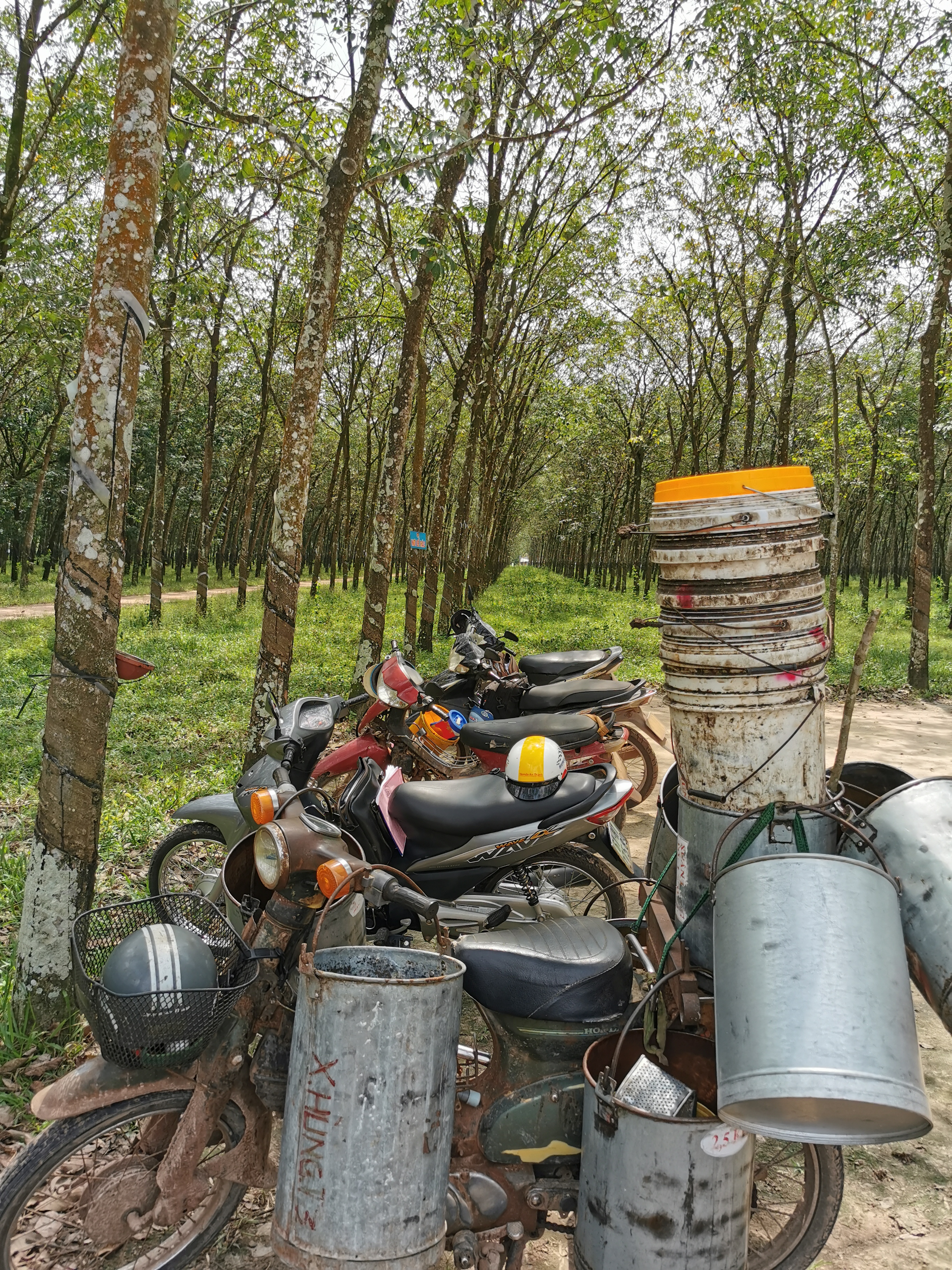Engagement with the market
Forest-based products have an important role to play as the world moves away from fossil-based materials. At PEFC, we work with several sectors to increase their use of certified, forest-based materials for the benefit of our planet, whilst also helping industries reach their sustainability targets.
Engagement with the market
31 December 2022 Annual Review
Today, sustainability is critical across all industry sectors. Products need to be produced in a manner that respects people and the planet, rather than contributing to climate change and deforestation, or resulting in poor working conditions.
Forest-based products have an important role to play as the world moves away from fossil-based materials.
At PEFC, we work with several sectors to increase their use of certified, forest-based materials for the benefit of our planet, whilst also helping industries reach their sustainability targets.
Designing the future with sustainable timber
Timber is becoming increasingly popular as a construction material, embraced by the architecture community for its versatility, flexibility and sustainability.

Developments in engineered timber have pushed the boundaries of what is possible, allowing to build faster, higher and safer with timber.
To ensure that this increased demand for wood is not to the detriment of forest health, we promote the use of certified timber in construction.
In 2022, we continued our partnership with the World Architecture Festival and awarded the Best Use of Certified Timber Prize for the fourth time.
The Prize recognises architects for their use of certified timber as a key element in outstanding projects.
The award went to Paseo Mallorca 15, designed by OHLAB. The residential building in Palma de Mallorca, Spain, has sustainability and energy efficiency at heart.
The striking façade of PEFC-certified wooden slats plays with the light and shade, giving the building a special atmosphere.
In addition to the winning project, the jury honoured the Växjö Town Hall and Train Station by SWECO with a highly commended prize.
Our national members help us spread the word, reaching out to the architecture community in their countries.
Projects around the globe showcase the enormous potential of timber construction.
From healthy indoor climates to prefabrication and the ability to dismantle and relocate buildings, they offer a glimpse of a new era of construction.
Renewable, recyclable, responsible packaging
Moving away from fossil-based materials such as plastics is an important step in making our world more sustainable.
Wood-based recyclable packaging can play a major role in this effort, but we must ensure that it never comes at the expense of forests. As one of the largest consumers of wood, the paper and packaging industry has a special role to play in using our forests sustainably.
Together with our members and partners in the packaging sector, we work to raise awareness for the enormous potential of sustainable paper packaging within the circular economy.
Our approach to Responsible Packaging brings together the three Rs – Renewable, Responsibly Sourced, and Recycled.
This approach combines sustainable forest management with safe working conditions and respect for human rights along the supply chain. Recycled materials help reduce the productive demand on forests, contributing to a responsible packaging solution.
 Joining forces to make a difference
Joining forces to make a difference

We teamed up with several of our national members and partners, companies and stakeholders, to encourage the use of PEFC-certified materials in packaging and promoting circular economy principles while reducing waste.
Through a range of resources, including events, webinars and case studies, we spread the message about responsible packaging practices, driving positive change in the industry.
By adopting this responsible approach to packaging, we can contribute to the long-term health and viability of our forests and the planet as a whole.
Join us! Contact us at packaging@pefc.org
Raising the bar for furniture sustainability
With increased awareness for sustainability around the world, demand for wooden furniture is on the rise.
At PEFC, we are convinced that using forest-based materials and forest protection can go hand in hand.
We are bringing wood suppliers and furniture manufacturers together to work towards a sustainable furniture industry and a bright future for the world’s forests.
15 national members, representing over 51 million hectares of certified forests, and thousands of furniture manufacturers and retailers have joined our effort.
Our cooperation with the ASEAN Furniture Industry Council (AFIC), which started in 2021, has made great progress in 2022.
Together we foster connections with PEFC-certified companies in the ASEAN region, helping them build wood sourcing policies, and raising awareness of sustainability in the furniture industry.

We continued our work with Italian High School ENAIP Tesero on a four-year education programme covering sustainability in the wood supply chain – from the protection and management of forest ecosystems to the traceability and legality of wood.
In a PEFC webinar, Dr. Francesco Negro, carbon storage expert from the University of Torino, explained the process of carbon storage in wooden furniture and how to calculate the amount that is stored.
Due to the large interest in the topic, we will launch a Carbon Storage Calculation Project in 2023.
The project helps companies calculate the carbon stored in wooden furniture products, providing useful information for life cycle assessments or sustainability reports.
Stay tuned!

Forest fibres for a sustainable fashion industry
As consumers become increasingly aware of the negative environmental impact that fashion can have, the demand for sustainable fashion is rising.

Choosing fibres from sustainably managed forests appeals to eco-conscious consumers and is a big positive step businesses can take towards climate action.
Man-made cellulosic fibres (MMCF) consume relatively low levels of water and energy. If they come from a sustainable source, they even help safeguard our forests.
In 2022, we continued to raise awareness for this innovative solution and the benefits it brings to companies and our planet, together with our members and various partners in the textile sector.
We were honoured to be among the principal industry experts to provide input into the first edition of the Global Fashion Agenda (GFA) Monitor, a new report to guide fashion leaders towards a net positive fashion industry.

Released as part of the Global Fashion Summit in Copenhagen, the report fosters collaboration on sustainability in fashion to accelerate impact.
At a brunch co-hosted with GFA, we welcomed GFA Monitor impact partners to discuss how our shared guidelines and actions can help the industry move towards sustainable fashion. Join us! Work with us on promoting forest fibres from sustainably managed forests.
2022 marked the first year of our partnership with the Textile and Fashion Federation (TaFF). At the centre of our work was the promotion of responsible sourcing, driving awareness of the importance of choosing legal and sustainable materials.
The second phase of the partnership, which started in December, will introduce sustainability aspects in the forestry supply chain relevant to the fashion industry, including natural rubber and packaging, and explore collaborations with PEFC members.
Contact us at textile@pefc.org
Upgrading the natural rubber sector
Natural rubber is a highly versatile resource whose utility is matched by few other materials. It is present in over 40,000 products, in some of which even synthetic rubber cannot be used as a substitute.
While natural rubber is essential to modern life, it also has a role to play in safeguarding our forests and the livelihoods of millions of smallholders.
We are working closely with the rubber sector, helping the natural rubber- and rubberwood-producing smallholders and processing companies prove their sustainable practices by obtaining PEFC certification.
Intensifying collaborations in 2022


The World Rubber Summit gathers industry leaders, experts, and government representatives with the aim of advancing a more inclusive and sustainable rubber sector.
We joined forces with the summit organiser International Rubber Study Group (IRSG) to contribute to that goal by expanding the tools and support available to rubber smallholders and corporations around the world.
The summit saw the announcement of our new memorandum of understanding with IRSG, agreeing on an even closer collaboration.
Since 2010, our Smallholder Group Certification programme has facilitated cooperation amongst family forest owners, community forest groups, and Indigenous Peoples in implementing sustainable forest management and pursuing forest certification.
Within this programme, we held a series of webinars, in which our members from Thailand, Vietnam, Finland, Germany and Spain shared knowledge and experience on group certification for smallholders, including rubber producers.

